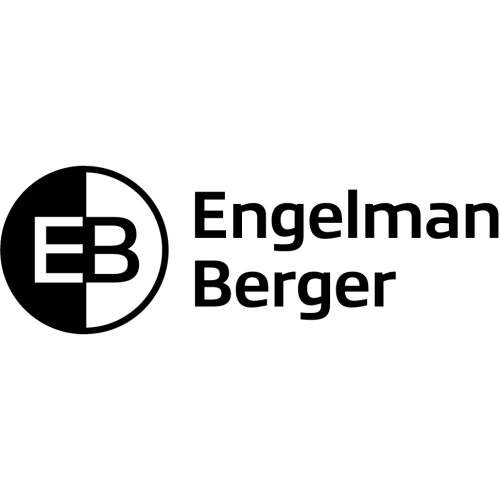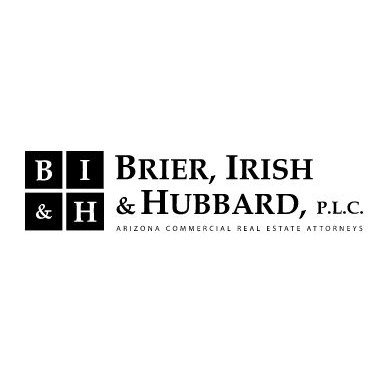Best Conveyancing Lawyers in Phoenix
Share your needs with us, get contacted by law firms.
Free. Takes 2 min.
Free Guide to Hiring a Real Estate Lawyer
List of the best lawyers in Phoenix, United States
About Conveyancing Law in Phoenix, United States
Conveyancing is the legal process of transferring ownership of real property from one party to another. In Phoenix, as in the rest of Arizona, conveyancing covers the drafting, reviewing, exchanging, and registering of documents necessary for a successful real estate transaction. Whether you are buying, selling, or refinancing property, understanding the conveyancing process helps ensure your interests are legally protected.
Phoenix conveyancing law involves unique local rules and requirements, including property disclosures, title examinations, and land recording procedures. Working within these legal frameworks helps to prevent disputes, safeguard your investment, and streamline your property transaction experience.
Why You May Need a Lawyer
While it is possible to attempt basic real estate transactions without legal assistance, several situations make it essential to consult a conveyancing lawyer in Phoenix:
- You are buying or selling residential, commercial, or vacant property
- The property has title issues, liens, or easements that need resolution
- You are involved in boundary disputes or unclear property lines
- There are co-owners, divorce, or probate matters affecting ownership
- You are purchasing property through foreclosure or short sale
- There are concerns about the legal sufficiency of contracts or disclosures
- You are dealing with out-of-state or foreign buyers or sellers
- You want help interpreting complex paperwork such as deeds and promissory notes
- You wish to verify compliance with all local laws and regulations
Seeking skilled legal advice early in the process helps minimize risk, avoids costly errors, and ensures the transfer meets all legal requirements.
Local Laws Overview
Phoenix, Arizona follows state property transfer laws while also imposing local practices and requirements that affect conveyancing. Important aspects include:
- Disclosure Requirements: Arizona law mandates sellers provide buyers with a Seller’s Property Disclosure Statement detailing any known material defects or issues related to the property.
- Title Examination: Buyers and sellers are typically required to conduct a title search through a title company, ensuring the property is free of encumbrances and liens.
- Deeds and Recording: Legal documents such as the warranty deed or quitclaim deed must be correctly prepared, signed, notarized, and recorded with the Maricopa County Recorder’s Office to formalize the transfer.
- Escrow and Closing Process: Transactions generally involve escrow accounts to safeguard funds until all legal and financial conditions are met at closing.
- Transfer Taxes and Fees: Arizona does not impose a state real estate transfer tax, but local recording fees and other costs may apply at closing.
- Homeowners’ Association (HOA) Regulations: If a property is subject to an HOA, specific documents and disclosures must be provided and any outstanding balances resolved before transfer.
Failure to comply with these local requirements can delay or invalidate a property sale, making legal guidance an important safeguard.
Frequently Asked Questions
What is conveyancing, and why is it important in Phoenix?
Conveyancing is the legal process where property ownership is officially transferred between parties. In Phoenix, this process ensures that all legal obligations are met, title issues are resolved, and your rights as a buyer or seller are protected.
Do I need a lawyer for conveyancing in Phoenix?
While not strictly required by law, hiring a lawyer is highly recommended, especially for complex transactions or when there are disputes, title concerns, or complicated legal paperwork.
How long does the conveyancing process usually take in Phoenix?
The average conveyancing process in Phoenix can take 30 to 60 days, depending on transaction complexity, financing, and any issues found during due diligence.
What documents are necessary for conveyancing in Phoenix?
Critical documents include the purchase agreement, title report, property disclosures, deed, settlement statement, and HOA disclosures if applicable.
What are common problems in the conveyancing process?
Issues can include title defects, unpaid liens, missing disclosures, incomplete contracts, problems with appraisals, or disputes about property boundaries.
Who pays for conveyancing costs in Phoenix?
Costs are typically split between buyer and seller based on local practice and the purchase agreement. Each party may have separate legal and title expenses.
What is escrow, and why is it used for conveyancing in Phoenix?
Escrow is a neutral account where funds and documents are held until all transaction conditions are satisfied. It protects both parties during the conveyancing process.
How are property disputes handled during conveyancing?
Disputes such as boundary issues, title defects, or breaches of contract can be resolved through negotiation, mediation, or, if needed, legal action with the help of an attorney.
Are there any taxes on property transfers in Phoenix?
Arizona does not have a real estate transfer tax, but there are local recording fees and possibly special assessments or outstanding HOA dues that must be settled at closing.
Can foreign nationals buy property in Phoenix, and do they need a lawyer?
Yes, foreign nationals can purchase property in Phoenix. Due to additional legal, tax, and financing implications, it is wise for non-resident buyers to work with a qualified lawyer familiar with Arizona real estate law.
Additional Resources
- Arizona Department of Real Estate: Oversees licensing and regulation of real estate professionals and provides education on local laws.
- Maricopa County Recorder’s Office: Handles the recording of property deeds and relevant documents in Phoenix.
- State Bar of Arizona - Find a Lawyer: Helps connect individuals with qualified real estate and conveyancing attorneys in Phoenix.
- Arizona Association of Realtors: Offers guidance, forms, and consumer protection information for buyers and sellers.
- Legal Aid Services: Community Legal Services provides free or low-cost legal help for qualified individuals involved in property matters.
Next Steps
If you are considering a real estate transaction in Phoenix and need conveyancing advice, follow these steps:
- Gather all relevant property documents and information, such as titles, ownership records, HOA details, and sale agreements.
- Outline your objectives and concerns, including any unique aspects of your situation, such as inherited property, liens, or co-ownership issues.
- Contact a skilled conveyancing lawyer licensed to practice in Arizona. Use resources like the State Bar of Arizona to find reputable professionals.
- Set up a consultation to review your transaction and ask about fees, timelines, and the steps involved in your specific case.
- Work closely with your lawyer to navigate each stage of the process. Make informed decisions based on legal guidance and protect your interests throughout the transfer.
Taking these steps will help ensure your conveyancing process in Phoenix is legally compliant, efficient, and secure.
Lawzana helps you find the best lawyers and law firms in Phoenix through a curated and pre-screened list of qualified legal professionals. Our platform offers rankings and detailed profiles of attorneys and law firms, allowing you to compare based on practice areas, including Conveyancing, experience, and client feedback.
Each profile includes a description of the firm's areas of practice, client reviews, team members and partners, year of establishment, spoken languages, office locations, contact information, social media presence, and any published articles or resources. Most firms on our platform speak English and are experienced in both local and international legal matters.
Get a quote from top-rated law firms in Phoenix, United States — quickly, securely, and without unnecessary hassle.
Disclaimer:
The information provided on this page is for general informational purposes only and does not constitute legal advice. While we strive to ensure the accuracy and relevance of the content, legal information may change over time, and interpretations of the law can vary. You should always consult with a qualified legal professional for advice specific to your situation.
We disclaim all liability for actions taken or not taken based on the content of this page. If you believe any information is incorrect or outdated, please contact us, and we will review and update it where appropriate.

















